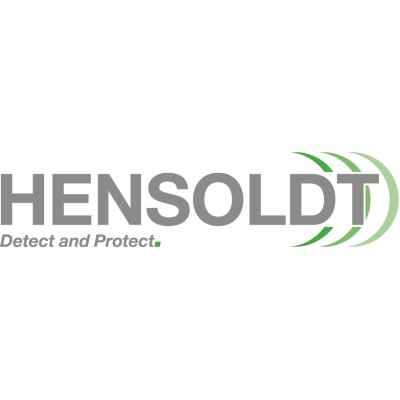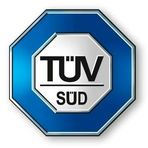Fernride Shifts Gears: Autonomous Logistics Company Secures €18M, Targets Defense
September 5, 2025, 3:37 pm
Fernride, a Munich-based ground autonomy leader, secures an additional €18 million in Series A funding, bringing its total to €75 million. The company is now aggressively expanding its proven autonomous logistics technology into critical defense applications across Europe. This strategic move leverages AI-powered, human-assisted systems to tackle driver shortages, enhance safety, and boost operational resilience. Fernride's solutions, already certified for civilian use, are designed for extreme environments, featuring robust cybersecurity and GPS-denied operational capabilities. This strengthens European technological sovereignty and security in vital sectors.
Munich's Fernride commands attention. The ground autonomy platform just announced an €18 million Series A extension. This brings its total funding to a robust €75 million. The fresh capital fuels an aggressive expansion. Fernride is moving beyond civilian logistics. It now sets its sights on crucial defense applications across Europe.
This strategic shift marks a pivotal moment. Fernride, founded in 2019, initially focused on automating trucks in yard and port logistics. Now, its vision broadens. The company aims to deliver scalable automation across diverse industries. This includes container terminals, yard operations, and defense logistics. Even autonomous road transport is on its radar.
The latest investment round saw participation from key players. DefenseTech investor Helantic backed the extension. Several prominent dual-use investors also joined. Thomas Müller, a former CEO of Hensoldt and Airbus Defense board member, is now on Fernride's Advisory Board. Existing shareholders doubled down. New strategic investors, family offices, and venture capital firms also contributed. This underscores confidence in Fernride's dual-use strategy.
Fernride’s technology is robust. It combines AI-powered autonomy with human oversight. A modular, vehicle-agnostic hardware platform supports its systems. This human-assisted autonomy allows remote takeovers when necessary. Seamless integration and reliable operations are paramount. The company boasts Europe's first fully certified autonomous trucking system. TÜV SÜD granted this safety certification in July. Operations now run without a safety driver. This crucial step confirms compliance with EU standards. Safety, cybersecurity, and system reliability are all met. This paves the way for large-scale industrial deployment.
Fernride built its reputation in civilian logistics. Blue-chip customers like HHLA, Volkswagen, and DB Schenker trust its solutions. Its technology operates at critical European infrastructure nodes. Container terminals benefit from its transformative capabilities. This civilian success provides a strong foundation. It demonstrates the technology's real-world problem-solving ability.
The pivot to defense is strategic and urgent. Europe faces significant logistics challenges. Personnel shortages plague both civil and defense sectors. Automation offers a vital solution. It frees human personnel from repetitive, dangerous tasks. Soldiers can focus on strategic roles. Truck driving becomes an automated function.
Defense logistics presents unique demands. Trucks are prime targets in conflict zones. Autonomous systems protect lives in high-risk environments. They enhance mission flexibility. Automation also improves vehicle efficiency. Idle periods vanish. Teleoperators manage multiple vehicles, maximizing productivity.
Fernride’s expansion supports European sovereignty. Leaders emphasize the need for homegrown solutions. Europe requires independence in critical industries and technologies. Autonomous systems for defense are mission-critical. Fernride aims to contribute quickly to this mission. Its "Made-in-Germany" innovation is crucial for technological independence.
The company's technology is built for extreme conditions. Modern warfare often involves cyberattacks. Cybersecurity has always been central to Fernride's design. Ports are strategic assets. They are constant targets in hybrid cyber warfare. Fernride implemented strong protections against cyber threats.
Its systems also operate in contested environments. Tests near the Russian border in Finland proved crucial. GPS interference was common. Fernride developed GPS-free localization within its self-driving stack. Its vehicles now operate in GPS-denied environments. This provides a significant advantage for defense applications.
Fernride addresses a growing need. Europe's defense capacity requires doubling its logistics. Current personnel numbers are insufficient. A conflict could redirect civilian drivers to front lines. Autonomous trucks fill this critical gap. They ensure resilient supply chains. They keep essential supplies moving.
The company envisions a future where autonomy strengthens society. It tackles driver shortages. It enhances safety. It protects lives. Fernride contributes to the stability of critical industries. Its platform scales across various sectors. From port automation to military transport, its reach expands.
Fernride currently employs over 150 individuals. This team continues to innovate. The company prepares to scale its civilian solutions. It will expand across European container terminals. Simultaneously, it launches defense projects. These collaborations involve European armed forces and vehicle manufacturers. Autonomous driving will integrate into next-generation vehicles. Fernride’s trajectory points to a future of secure, autonomous logistics. It redefines efficiency and safety for Europe's critical infrastructure and defense needs.
Munich's Fernride commands attention. The ground autonomy platform just announced an €18 million Series A extension. This brings its total funding to a robust €75 million. The fresh capital fuels an aggressive expansion. Fernride is moving beyond civilian logistics. It now sets its sights on crucial defense applications across Europe.
This strategic shift marks a pivotal moment. Fernride, founded in 2019, initially focused on automating trucks in yard and port logistics. Now, its vision broadens. The company aims to deliver scalable automation across diverse industries. This includes container terminals, yard operations, and defense logistics. Even autonomous road transport is on its radar.
The latest investment round saw participation from key players. DefenseTech investor Helantic backed the extension. Several prominent dual-use investors also joined. Thomas Müller, a former CEO of Hensoldt and Airbus Defense board member, is now on Fernride's Advisory Board. Existing shareholders doubled down. New strategic investors, family offices, and venture capital firms also contributed. This underscores confidence in Fernride's dual-use strategy.
Fernride’s technology is robust. It combines AI-powered autonomy with human oversight. A modular, vehicle-agnostic hardware platform supports its systems. This human-assisted autonomy allows remote takeovers when necessary. Seamless integration and reliable operations are paramount. The company boasts Europe's first fully certified autonomous trucking system. TÜV SÜD granted this safety certification in July. Operations now run without a safety driver. This crucial step confirms compliance with EU standards. Safety, cybersecurity, and system reliability are all met. This paves the way for large-scale industrial deployment.
Fernride built its reputation in civilian logistics. Blue-chip customers like HHLA, Volkswagen, and DB Schenker trust its solutions. Its technology operates at critical European infrastructure nodes. Container terminals benefit from its transformative capabilities. This civilian success provides a strong foundation. It demonstrates the technology's real-world problem-solving ability.
The pivot to defense is strategic and urgent. Europe faces significant logistics challenges. Personnel shortages plague both civil and defense sectors. Automation offers a vital solution. It frees human personnel from repetitive, dangerous tasks. Soldiers can focus on strategic roles. Truck driving becomes an automated function.
Defense logistics presents unique demands. Trucks are prime targets in conflict zones. Autonomous systems protect lives in high-risk environments. They enhance mission flexibility. Automation also improves vehicle efficiency. Idle periods vanish. Teleoperators manage multiple vehicles, maximizing productivity.
Fernride’s expansion supports European sovereignty. Leaders emphasize the need for homegrown solutions. Europe requires independence in critical industries and technologies. Autonomous systems for defense are mission-critical. Fernride aims to contribute quickly to this mission. Its "Made-in-Germany" innovation is crucial for technological independence.
The company's technology is built for extreme conditions. Modern warfare often involves cyberattacks. Cybersecurity has always been central to Fernride's design. Ports are strategic assets. They are constant targets in hybrid cyber warfare. Fernride implemented strong protections against cyber threats.
Its systems also operate in contested environments. Tests near the Russian border in Finland proved crucial. GPS interference was common. Fernride developed GPS-free localization within its self-driving stack. Its vehicles now operate in GPS-denied environments. This provides a significant advantage for defense applications.
Fernride addresses a growing need. Europe's defense capacity requires doubling its logistics. Current personnel numbers are insufficient. A conflict could redirect civilian drivers to front lines. Autonomous trucks fill this critical gap. They ensure resilient supply chains. They keep essential supplies moving.
The company envisions a future where autonomy strengthens society. It tackles driver shortages. It enhances safety. It protects lives. Fernride contributes to the stability of critical industries. Its platform scales across various sectors. From port automation to military transport, its reach expands.
Fernride currently employs over 150 individuals. This team continues to innovate. The company prepares to scale its civilian solutions. It will expand across European container terminals. Simultaneously, it launches defense projects. These collaborations involve European armed forces and vehicle manufacturers. Autonomous driving will integrate into next-generation vehicles. Fernride’s trajectory points to a future of secure, autonomous logistics. It redefines efficiency and safety for Europe's critical infrastructure and defense needs.



